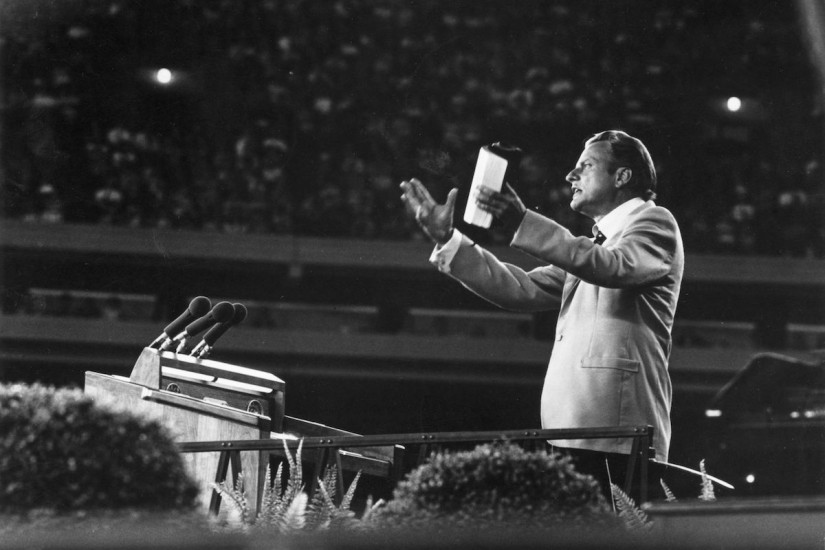Part of what makes Billy Graham so controversial is that he symbolized one of the great divides in U.S. religious life: the divide between evangelical and liberal Protestants. Graham himself tried to overcome this divide. He was a Southern Baptist who offered a broadly ecumenical, if clearly Protestant, message. In his crusades, he worked closely with a broad range of churches in each city. He was far more willing to cross denominational lines than most evangelicals.
But Graham never really understood, and certainly never embraced, the activist, liberal, ecumenical visions of the World Council of Churches and its allies. As David Hollinger wrote in the New York Times, Graham was central in consolidating the evangelical movement as an alternative to the “so-called Protestant establishment.” In 1956, he helped to found Christianity Today, operating as part of a group of theologically conservative believers who were trying to refashion early-twentieth-century fundamentalism into something more engaged and worldly. Thus Billy Graham was part of the team that “seized control of the symbolic capital of Christianity” from liberals, and he encouraged a vision of Christianity that was focused on “a fundamentalist reading of the Bible” both at home and abroad. The ecumenical World Council of Churches, on the other hand, “promoted less sectarian versions of Christianity and less conversion-centered modes of interaction with the peoples of the globe.” Hollinger is right to highlight this great division in Protestantism and to remind us that Graham represented and helped to strengthen the conservative wing.
Graham’s conservatism was political as well as theological. As a number of scholars commented in recent weeks, including Kevin Kruse in the Washington Post, Graham began his career with a profoundly conservative political vision, one that spoke to the “God and country” logic of McCarthyism and its progeny. In 1949, Kruse tells us, Graham told an early audience that “communism is a religion that is inspired, directed, and motivated by the Devil himself who has declared war against Almighty God.” For the next twenty-five years (at least), Graham continued to insert himself into political debates, usually on behalf of Republicans.
As most commentators have noted, including Kruse and Jeff Greenfield in Politico, the low point of Graham’s embrace of power was his relationship with President Richard Nixon, whom Graham pandered to shamefully, and who, in turn, used Graham shamelessly. In 2002, White House tapes revealed Graham making anti-Semitic comments in a conversation with Nixon. Whether these remarks were offered simply to curry favor with the president or whether they represented Graham’s true views, they indicated something deeply disturbing about his moral compass.
